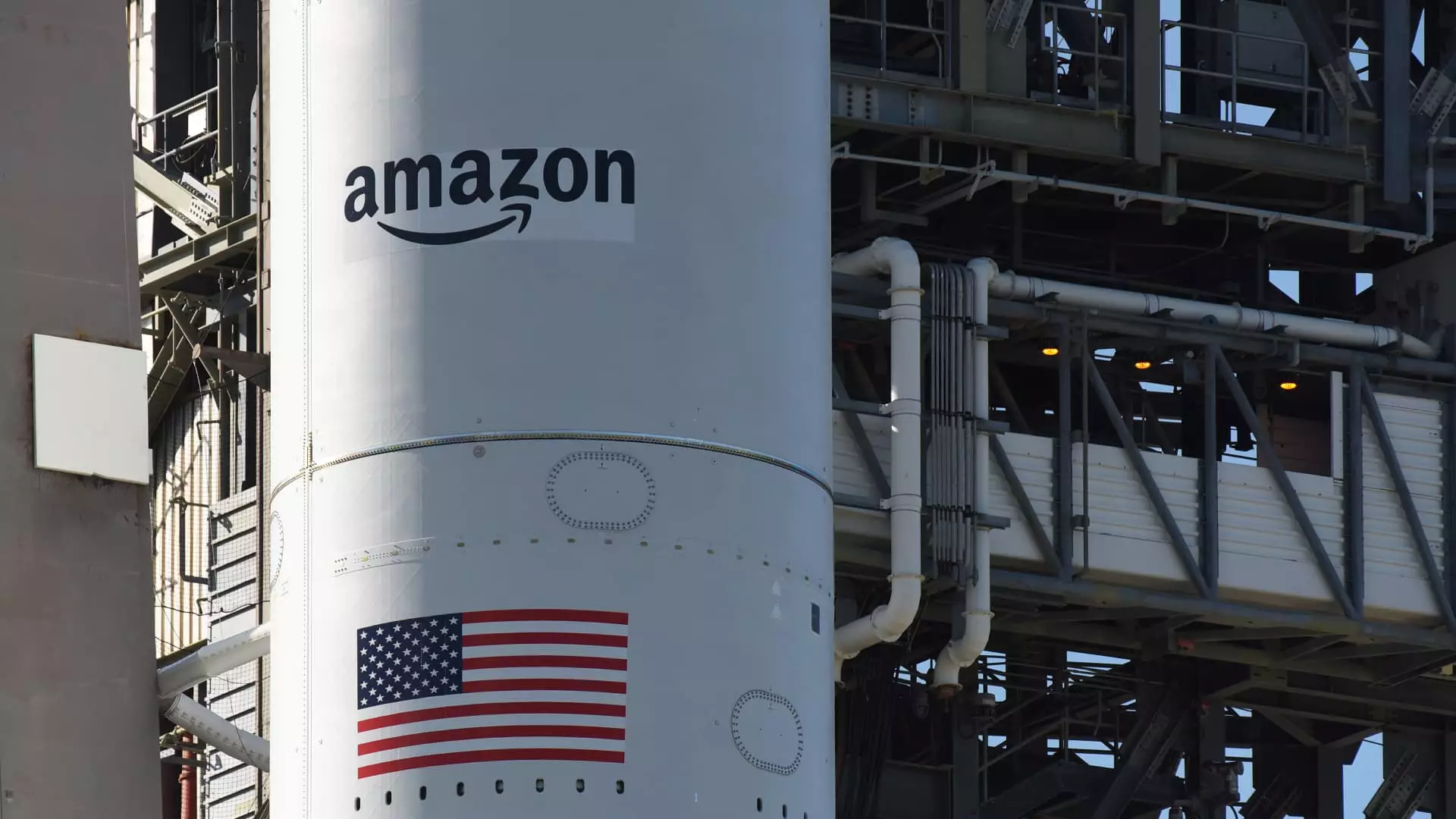In an era where instant connectivity is not just expected but demanded, the recent postponement of Amazon’s Kuiper satellite launch highlights a major hiccup in the company’s ambitious plans. On a night where anticipation was palpable, heavy winds and persistent clouds conspired to ground the United Launch Alliance rocket that was set to deploy 27 Kuiper satellites. This mishap isn’t simply a minor scheduling issue; it exemplifies the fragility of human plans against the unpredictability of nature. Denying the countdown operations due to “stubborn cumulus clouds” reveals a profound truth in technology and exploration: sometimes, even the mightiest players must bow to the whims of weather.
Amazon’s Race Against Time
Amazon’s entry into the satellite internet sector isn’t just another corporate endeavor—it’s a pivotal struggle for survival in a technologically evolving landscape. Launched six years ago, Kuiper was designed with the goal of delivering high-speed, low-latency internet to underserved regions, and to rival the already-dominant SpaceX Starlink. As billions of individuals are still trapped in the digital divide, Amazon’s vision for affordable connectivity seems noble, yet it is fraught with challenges and intense competition. As the clock ticks ominously toward a Federal Communications Commission (FCC) deadline mandating the launch of 1,618 satellites by July 2026, this delay could prove detrimental to Amazon’s aspirations.
The Shadow of Competition
Amazon, under the leadership of Jeff Bezos, is not just responding to a market opportunity; it is scrambling to catch up with a behemoth that has already secured its position: SpaceX. With approximately 8,000 satellites orbiting Earth and Elon Musk effectively entwined in governmental affairs, the federal landscape appears increasingly friendly to Starlink. The bias toward well-connected corporations like SpaceX raises questions about fair competition and accountability. The pervasive influence of Musk in the highest echelons of government allows SpaceX to rapidly expand its footprint, leaving Amazon in a precarious position. While technology should lead to access for all, it often devolves into a contest of who has the biggest influence rather than who provides the best service.
Technological Essentialism vs. Political Realities
The Kuiper project embodies a larger issue facing tech giants: the fragility of technological advancement under the weight of political maneuvering. Companies in the tech space are continually being challenged to innovate while navigating an ever-evolving regulatory landscape. The ambitions of technological giants like Amazon to deliver essential services, such as internet access, to global citizens should not be overshadowed by their competitors’ political connections. The intermingling of technological innovation with politics brings forth ethical dilemmas, such as equity of access and the monopolization of critical infrastructure.
The Uneasy Path Forward
Though setbacks are part of any grand venture, Amazon must not become complacent. The responsibility to deliver on promises of connectivity and vast improvements in access rests not only on successful launches but also on a commitment to equitable digital governance. If Kuiper can overcome its current obstacles, it could contribute meaningfully to a more inclusive and connected world. The recent delay serves as a stark reminder that in the battle for the skies, patience and adaptability may prove just as critical as technological prowess.

Leave a Reply